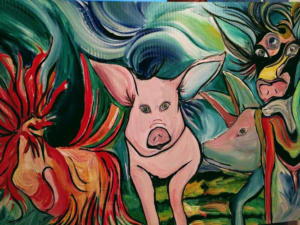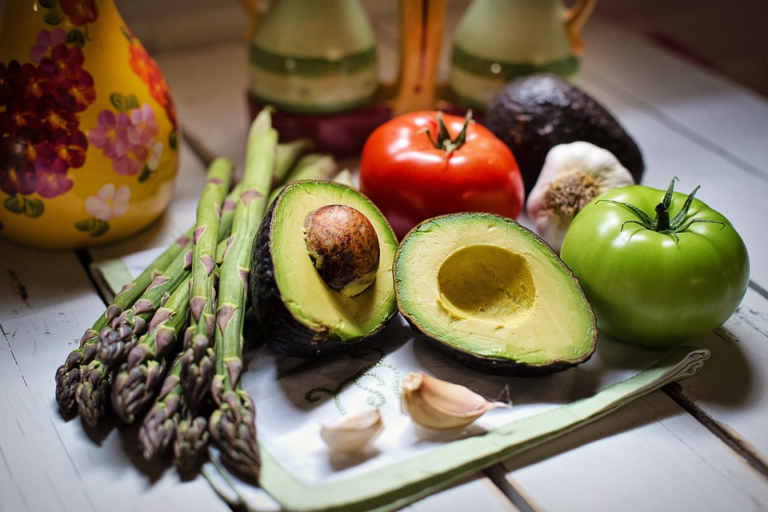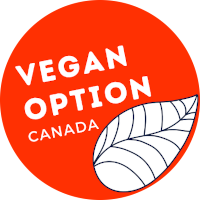Why?
The Canadian Charter of Rights and Freedoms stipulates, in article 2A, that every Canadian citizen enjoys, among the fundamental freedoms set out, freedom of conscience and religion. The choice to eat a vegan diet can therefore no longer be ignored, since it is explicitly a matter of freedom of conscience.
Consequently, today, no one should be forced to consume to consume meat, milk, cheese or eggs, if these foods are inconsistent with their deep-rooted ethical, social and environmental values.
In line with the Canadian government’s commitment to optimal health: “All sectors, including agriculture, the environment, education, housing, transportation, the food industry, commerce, as well as child, family and social services, have a role to play in developing Canada’s dietary guidelines, with the aim of having optimal, long-term impacts on the nutritional health of Canadians. Physical, economic and social barriers to healthy eating need to be identified and addressed promptly. These sectors can make strategic decisions within their sphere of influence to improve the accessibility and availability of nutritious food. for Canadians of all ages. They can also identify barriers and propose action plans. The development of policies and programs is essential to creating environments conducive to healthy eating across the country.”
For your health:
The new version of Canada's Food Guide recommends eating mainly unprocessed, rich and diversified products containing plant proteins, whole grains and legumes.
The vegan diet is now a public health issue.
Recent research shows that a plant-based diet reduces the risk of heart disease, cancer and type 2 diabetes.
A rich, diversified vegan diet is suitable for people at all stages of life, and meets all nutritional needs.

For the environment:
A vegan diet is the best way to reduce our ecological footprint
It also represents a planetary challenge, since it considerably limits environmental degradation at all levels: soil, water, air, forests. The UN has declared that a plant-based diet helps protect the planet from ongoing climate change, since livestock farming is one of the main culprits.

Lorem ipsum dolor sit amet, consectetur adipiscing elit. Ut elit tellus, luctus nec ullamcorper mattis, pulvinar dapibus leo.

Why choose a plant-based diet?
There are many reasons for choosing a vegan diet, which is often part of a broader vegan (no animal products) lifestyle ethic.
For your health:

- The new, revised version of Canada’s Food Guide recommends that institutions and Canadians eat primarily unprocessed, rich and diversified products containing plant proteins, whole grains and legumes.
- Vegan food is now a public health issue
- Recent research shows that a plant-based diet reduces the risk of heart disease, cancer and type 2 diabetes.
- A rich and diversified vegan diet is suitable for people at all stages of life, and meets all nutritional needs.
Recent research suggests that eating balanced meals consisting solely of plant-based foods (fruits, legumes, nuts) is not only healthy, but optimal for your health. The World Health Organization, the American Medical Association and renowned doctors such as Dr. Neil Barnard, President of the Physicians Committee for Responsible Medicine , and Anne-Marie Roy, a renowned plant-based nutritionist in Montreal, recommend adopting a plant-based diet to extend life expectancy and live healthier. In fact, top athletes such as Serena Williams and Tom Brady follow a vegan diet to enhance their performance. Find out more about twenty world champion vegan athletes here.
Knowing that plant proteins abound and are far more assimilable in plant form, it becomes imperative to have access to an animal product-free option. Recent research suggests that processed meat is one of the biggest causes of cancer, diabetes, obesity and cardiovascular disease.
A large proportion of the world’s population is now lactose intolerant. What’s more, numerous research studies suggest that casein, the protein found in milk, is not adapted to our metabolism. It may contribute to the proliferation of cancer cells, and is linked to osteoporosis, heart disease, diabetes, arthritis, acne and other illnesses.
For the environment:
- A vegan diet is the best way to reduce our ecological footprint
- It also represents a planetary challenge, since it considerably limits environmental degradation at all levels: soil, water, air and forests. The UN has declared that a plant-based diet helps to protect the planet from ongoing climate change, since livestock farming is one of the main culprits.

Animal farming for human consumption involves the death of some 60 billion animals and 1,000 billion fish every year. Industrial livestock farming is also the world’s 2nd biggest cause of pollution, after all forms of transport combined (cars, planes, boats, etc.). Consuming animal products contributes directly to deforestation and the extinction of over 3/4 of the world’s animal species. Soil, water and air pollution, as well as the Dead Zone ocean, are the result. National Geographic points out that by 2048 the ocean will be emptied of almost all its marine life.
From an environmental perspective, factory farming is a major emitter of GHGs and methane. Massive deforestation, soil degradation and acidification, contamination of rivers and oceans, and global warming are just some of the many harmful and irreversible environmental impacts of cattle farming.
We therefore have every right to question the legitimacy and dubious ethics of such practices.

For animals:
- The average person on a Western diet eats thousands of animals in their lifetime, most of them from factory farms.
- A plant-based diet can save these animals’ lives.
The fate of cows and bulls, whether in battery cages or in the fields, is one of standardized suffering inherent in their object conditions, forced confinement and mutilation. In order to produce milk, cows have to be forcibly bred, constantly throughout their shortened lives. After nine months of pregnancy, her newborn calf is ripped from her within hours, if not days. The cows develop infectious and respiratory diseases, including painful mastitis due to the lactation apparatus. As for their male calves, they are systematically killed to produce lamb meat, while the female calves are destined for the same tragic fate as their mothers.
The dog, of course, can neither work nor go to school. Similarly, the cow can neither vote nor promote its rights. However, in our ability to suffer, we are all equal. A dog is a cat, and a cow is a human. Veganism is neither a moralizing device nor an expression of personal purity. Veganism and anti-speciesism exist to promote the equal consciousness of human and non-human animals. By definition, sentient beings can feel emotions and pain. Object status therefore seems inadequate.
Discrimination, whether based on gender (sexism), race (racism), ability (ableism) or human or animal race (speciesism), is in no way morally justifiable.
The development or cognitive limitation of certain animals does not justify their forced confinement, mutilation and killing. This aspect is morally irrelevant. Indeed, is it any more ethically justifiable to restrict the freedom, use and inflict pain on people, for example, with mental limitations? Absolutely not.
This moral incoherence is hidden. Livestock factories and slaughterhouses are systematically protected and kept out of sight and off-limits to the public, so much so that the cruelty, both physical and emotional, is beyond comprehension.
Faced with this systemic violence kept under lock and key, it’s hardly surprising that the anti-speciesist movement is gaining momentum. We can no longer ignore the alarm, and have the right, as humans, to no longer consent to the enslavement and inherent suffering inflicted by mass breeding.These animals rendered object, whether dog, cat, horse, goose, beef or pig, all have the same capacity to feel. I feel, therefore I am.
To fight world hunger:
- Given that over 34% of edible crops are destined for livestock, we could help put an end to world hunger.
- The human cost of our flawed food systems is that nearly a billion people go hungry. [1]
- It doesn’t take an expert to realize that farm animals consume far more food than they produce. But how inefficient is meat production?

We need to examine theconsumer index (CI) to understand the answer. In animal agriculture, IC measures the efficiency (perhaps inefficiency would be a better word) with which the livestock body converts animal feed into the desired output (meat). [2] L’forage units (UF) essentially tells us how many units of food are needed to produce a single unit of meat. The lower the UF, the better, as less food is needed to produce the meat that humans consume.
Many factors have an impact on UF. The most obvious is the type of animal in question. UF is different for a chicken than for a pig, for example. The more imprecise factors are things like the animal’s breed, age and grain quality. The UF for chickens is around 4.5, pigs around 9.4 and cows around 16 (some sources put it as high as 25)[3] [4].
Whatever animal we look at to produce our food (meat), meat production is a highly inefficient system. In addition to its inefficiency, 82% of the world’s hungry children live in countries with grain surpluses. 100% of the world’s starving children live in countries whose grain surpluses are fattened by people living in developed countries. [ 5] This is terribly unfair, and if we truly believe in human rights and compassion, we should not support a system that exploits humanity in this way.
Consequences:
- A large proportion of the crops produced are fed to livestock, supporting inefficient food production instead of being consumed directly by humans, thus reducing world hunger.
- By choosing to eat meat rather than plants, we intensify world hunger by taking food away from the already hungry to feed our appetites for meat.
In conclusion, producing crops for livestock is far more inefficient than feeding humans directly. If we want to help reduce human suffering due to extreme poverty around the world, there’s one simple thing we can do right now, choose to eat a vegan diet.
For the taste:
- With the wide variety of vegetables available and the growing number of vegetarian and veggie products on the market, a plant-based diet can be delicious, healthy and balanced.

Economic reasons:
- In addition to the ethical and human rights aspects, there are also tangible benefits to offering a vegan option, including large-scale cost savings and longer life spans for those who consume these meals. While the addition of a vegan option to the menu of public cafeterias represents an additional economic cost to the traditional menu, this healthy addition would, in effect, reduce the social and economic cost of a society that runs almost exclusively on animal products.
Conclusion
Vegan eating is becoming a leading informed choice for all Canadians.
